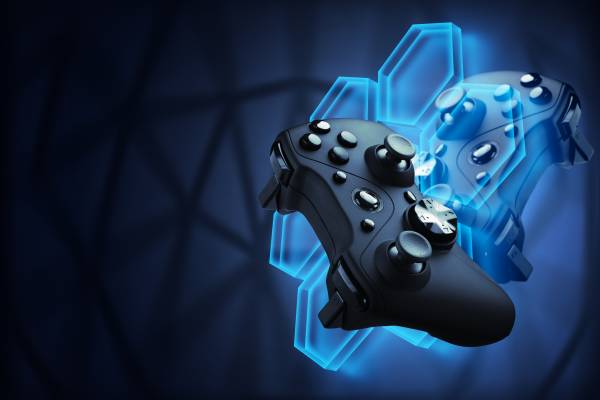Blockchain and eSports are two industries on the rise, with blockchain’s market cap close to $5 billion in 2021 and eSports growing to almost $1 billion in 2018 alone.
These two respective niches are poised to merge together, with blockchain fueling future eSports competitions.
If you are involved in either, whether you’re a professional video gamer or a techie with a fondness for blockchain, here are five ways on how blockchain will potentially be integrated in the world of eSports.
Decentralized eSports
The main allure of cryptocurrencies that are built on some form of blockchain, whether it’s Bitcoin’s or Ethereum’s, is decentralization. Pertinent information, including player stats, sponsors, and marketers, are held on a peer-to-peer network.
Anyone involved in an eSports competition can access that network to manage the distribution of earnings and awards, transfer players around, and handle media rights and marketing campaigns.
Transparency and Trust
Perhaps one major problem that eSports has yet to solve is trust or lack thereof. Players are unwilling to devote their resources to build a high-level gaming career because they simply cannot trust the current system.
Players don’t know where the sponsorship money goes, how much prize money they actually make per competition, etcetera.
These are concerns that blockchain is poised to solve through transparent smart contracts that provide details to all stakeholders involved, from players to sponsors.
Even cryptocurrency prices that run on a blockchain ecosystem are monitored and updated in real time to ensure transparent market interaction between buyers and sellers.
Leveled Playing Field
eSports is booming and becoming a viable career path for today’s generation, but it remains inaccessible to players who are only starting out and do not have the financial capacity to participate in major tournaments.
Blockchain technology can be used to maintain and operate the necessary database for these competitions to take place in an organized and efficient manner while also bringing down operational costs. Lower costs means more accessibility for new underfunded players.
Increased Loyalty and Engagement
Through blockchain-based ecosystems, eSports teams can bolster fan loyalty and engagement by rewarding fans for certain user actions, such as following the team’s social media pages and posting or sharing related content.
Loyalty programs built on a blockchain makes it easy and cost-efficient to reward your fanbase with points or tokens that they can then use to purchase team swag, such as tickets or rare team NFTs. Aside from customer loyalty, these engagement platforms can also help eSports teams improve their relationship with sponsors.
Since blockchain-based smart contracts are immutable and transparent, they can act as a guarantee of the integrity and accuracy of the data points and insights collected from the team’s fanbase.
Secured Payments
Illegal gambling and match-fixing are prevalent in eSports and is preventing the industry from growing to its fullest potential.
With a blockchain-based system, smart contracts are automatically executed when predefined parameters are hit. Since cryptocurrency markets allow for secure transactions that are permanent and unchangeable, stakeholders can rest assured that they get paid on time and in the full amount.
The use cases for blockchain in an eSports context is growing rapidly. As more eSports teams adopt blockchain technology to manage transactions and interactions, more people, including casual gamers and small-time investors and sponsors, will follow suit.






![YouTube SEO in 2024 [Definitive Guide]](https://getpixie.com/wp-content/uploads/2024/02/shutterstock_1684828252-1-150x150.jpg)








